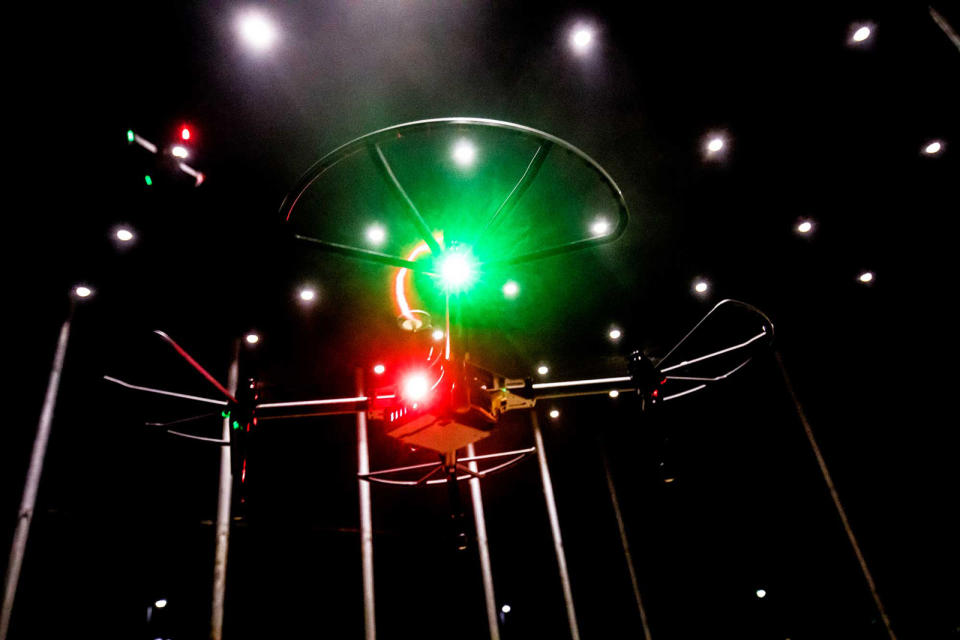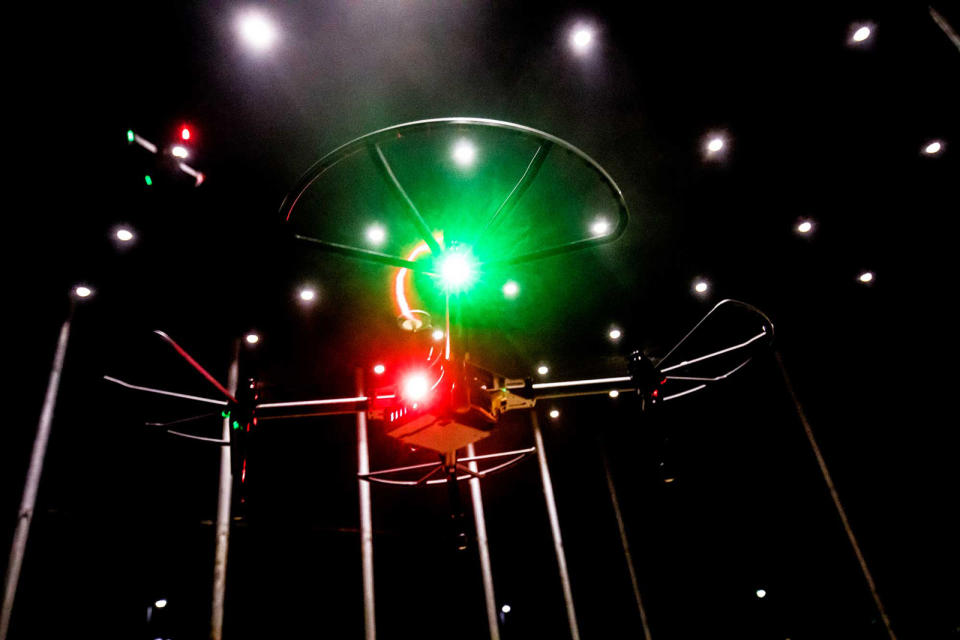University of Michigan launches outdoor lab for autonomous drones
It can test robotic aircraft outside without safety risks.
The University of Michigan's autonomous vehicle testing grounds are no longer limited to earthbound machines. It just opened M-Air, a 9,600 square foot, four-story facility designed for testing autonomous aircraft outdoors. The complex lets researchers test drones in realistic lighting and wind conditions, but includes netting that prevents wayward drones from smacking into people or other aircraft. The addition enables the kind of experiments that would previously have required permission to fly outside.
Researchers already have a few examples of what they can do. One team has been dropping sensor-laden weights that can gauge what's happening underground after an earthquake. Another project would test roofing robots that could haul and even install shingles without forcing you to climb a ladder.
M-Air is unusual in the autonomous aircraft space, and the U of M is eager to point out that it's now the only engineering school in the US with robotic vehicle testing for air, land, sea and space. It might not be the last, mind you. Small drones are quickly becoming valuable tools for tasks like rescue and observation, and test locations like M-Air can accelerate the development of these drones without creating unnecessary risks.


